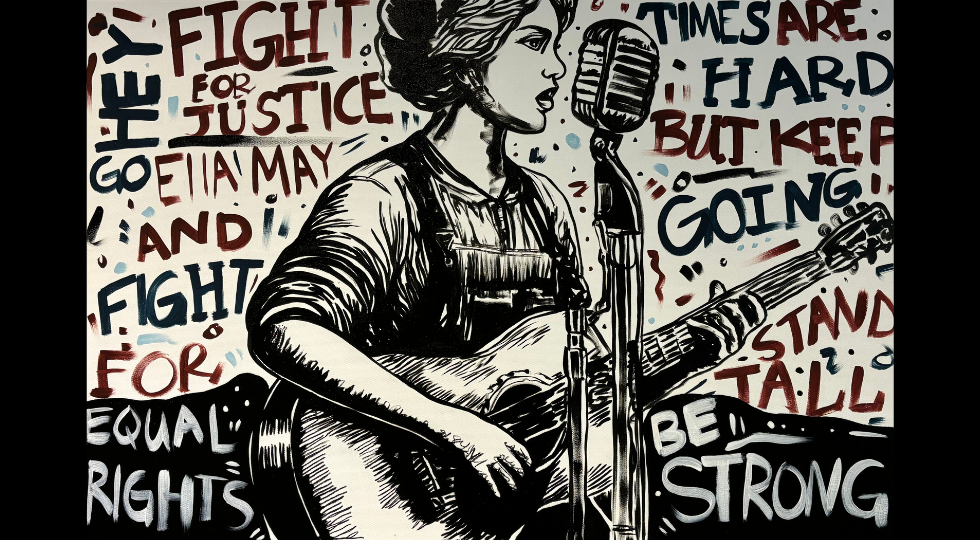Path of Portraits: Ella May Wiggins

Portrait by Isaiah Kidd, 2024
Ella May Wiggins was a textile worker and union organizer born in western North Carolina. After her parents' premature death, a young Ella May worked in the mills to support her family. Upon her death in 1929 she was supporting her five living children on less than $9 per week.
In the late 1920s, Wiggins struggled to survive due to the harsh working conditions in local textile mills. She and her fellow workers faced increased hours, reduced wages, and unsafe housing. In response, along with support from the National Textile Workers Union, workers at the Loray Mill initiated a strike that divided the community and captivated the nation, leading to similar strikes across the South.
Wiggins helped organize Black and White workers together and penned some of the region's most popular protest songs. On September 14, 1929 Ella May was scheduled to sing her ballads to the strikers at a rally in Gaston County, but police and vigilante strikebreakers blocked their path. As Wiggins and her unarmed comrades retreated, she was gunned down by the mob. The five responsible men we acquitted in a trial in Charlotte in 1930.
See more of Isaiah's work on Facebook: KiddVisuals
Tags: Women's History | Protest | Textiles